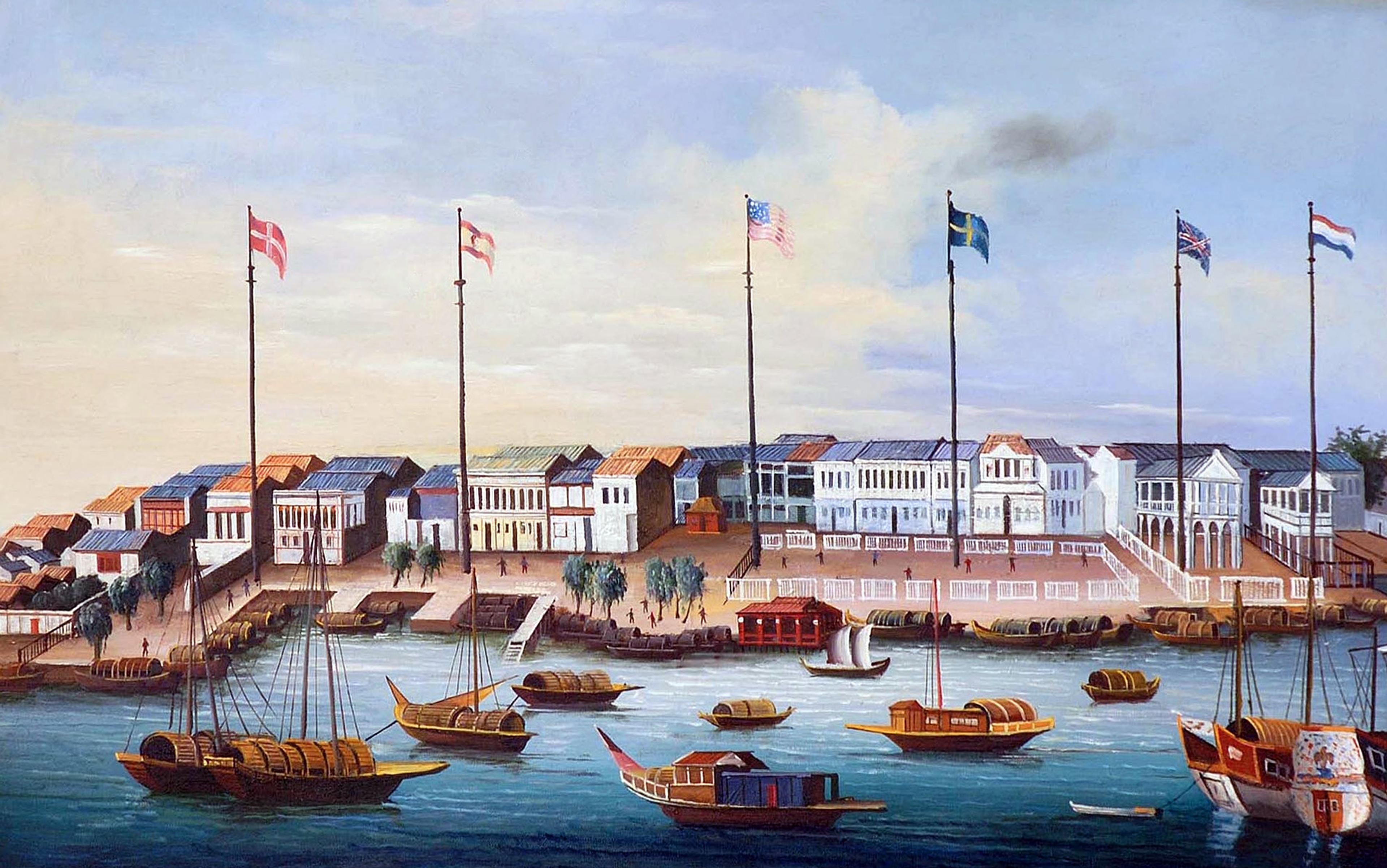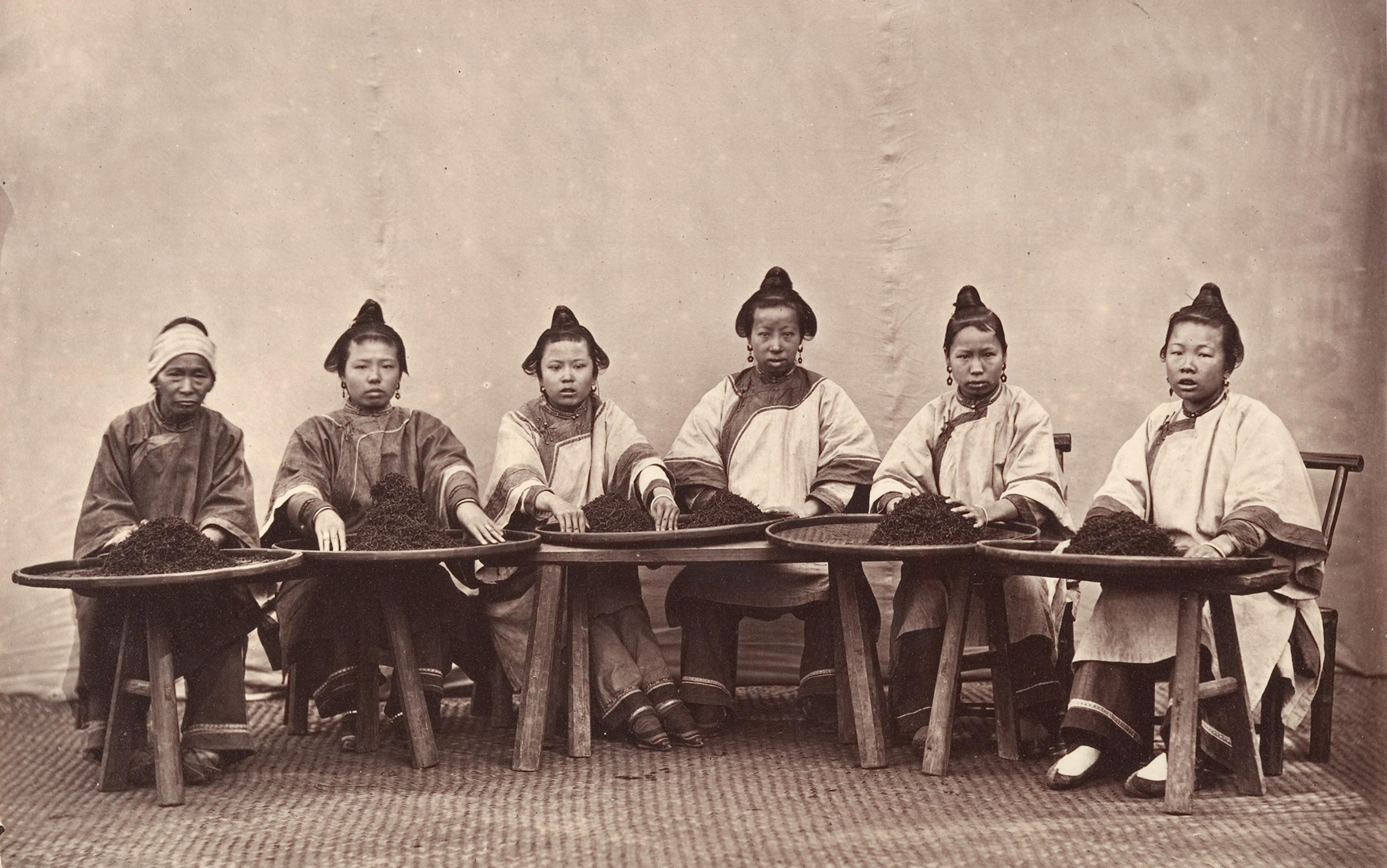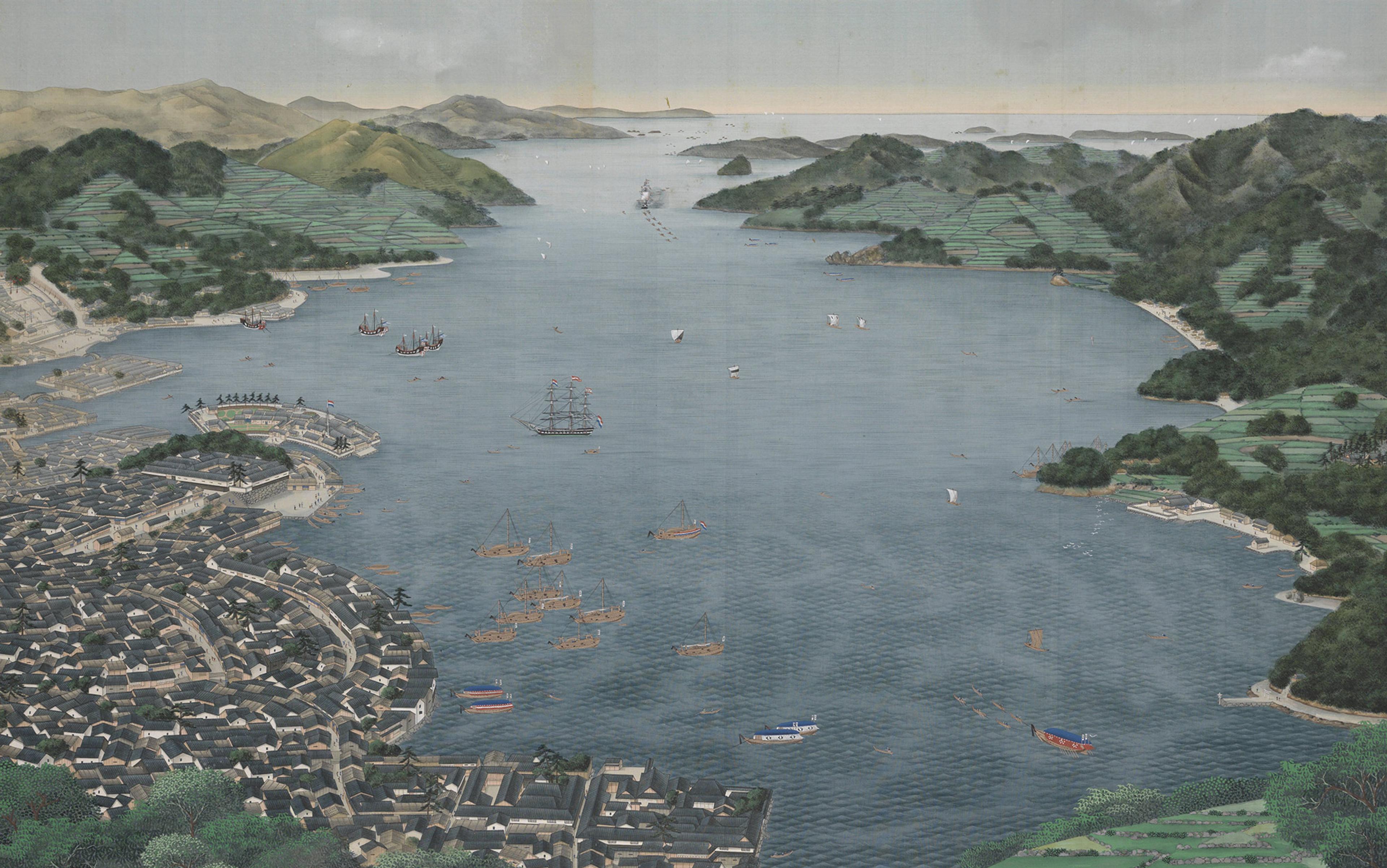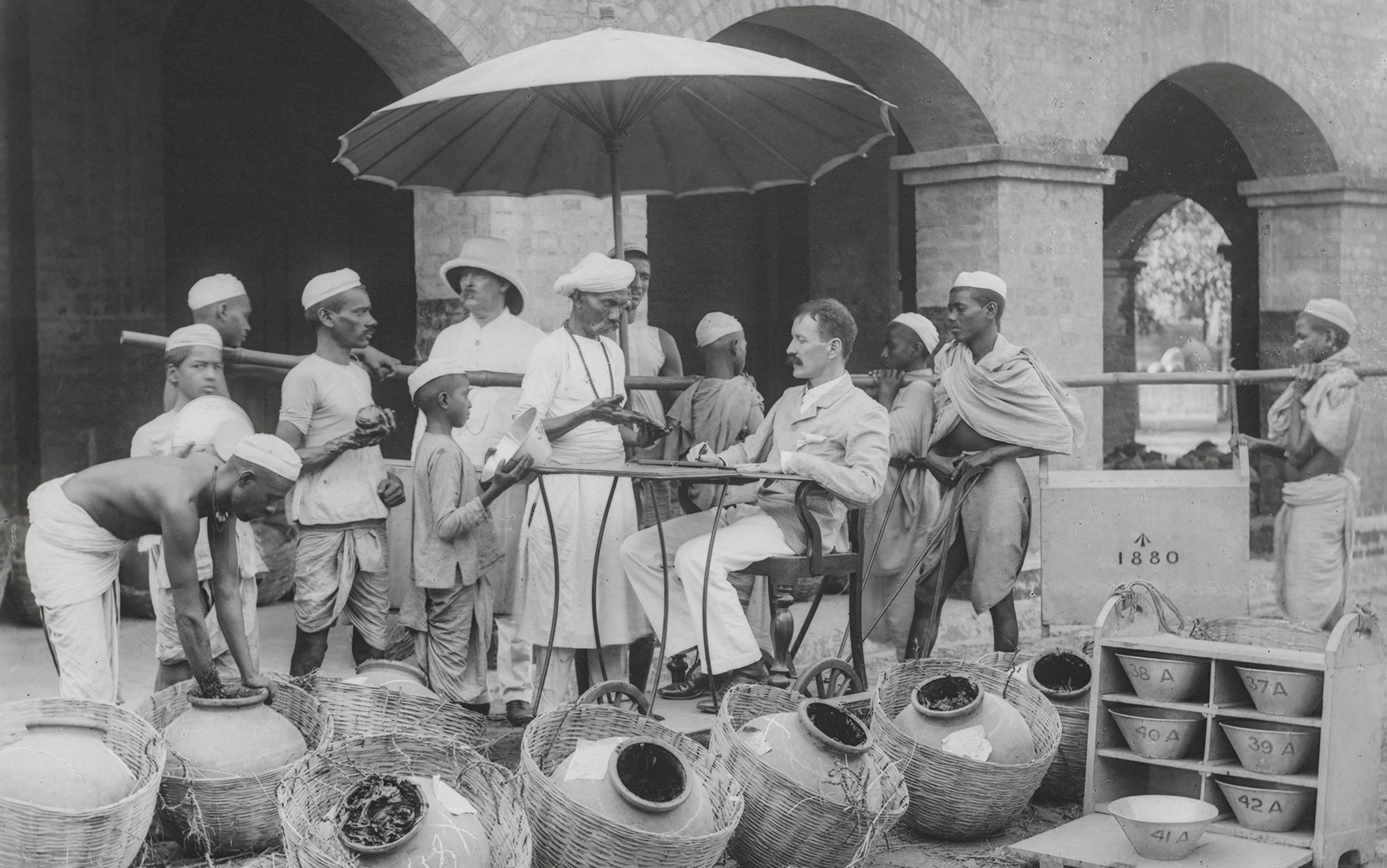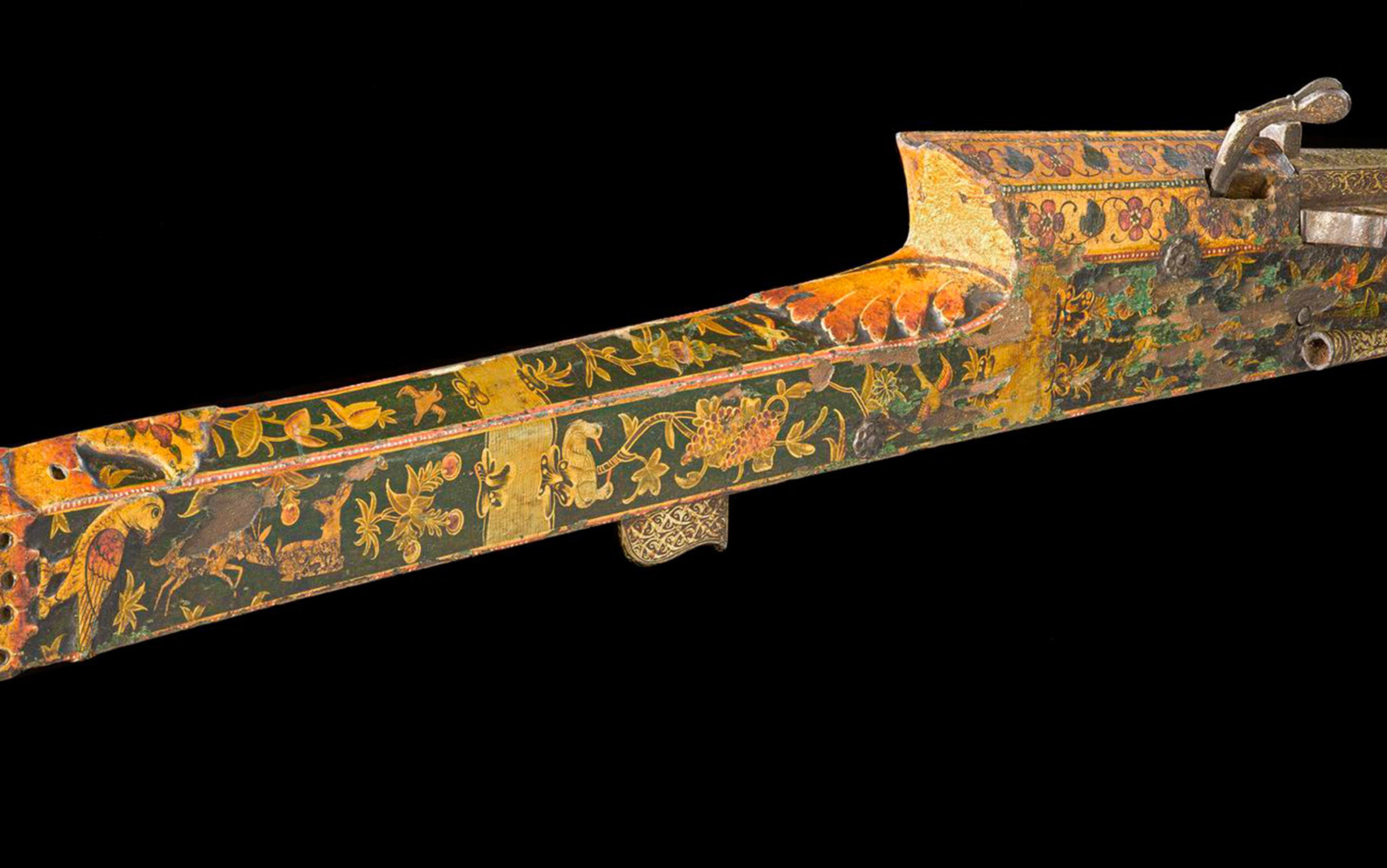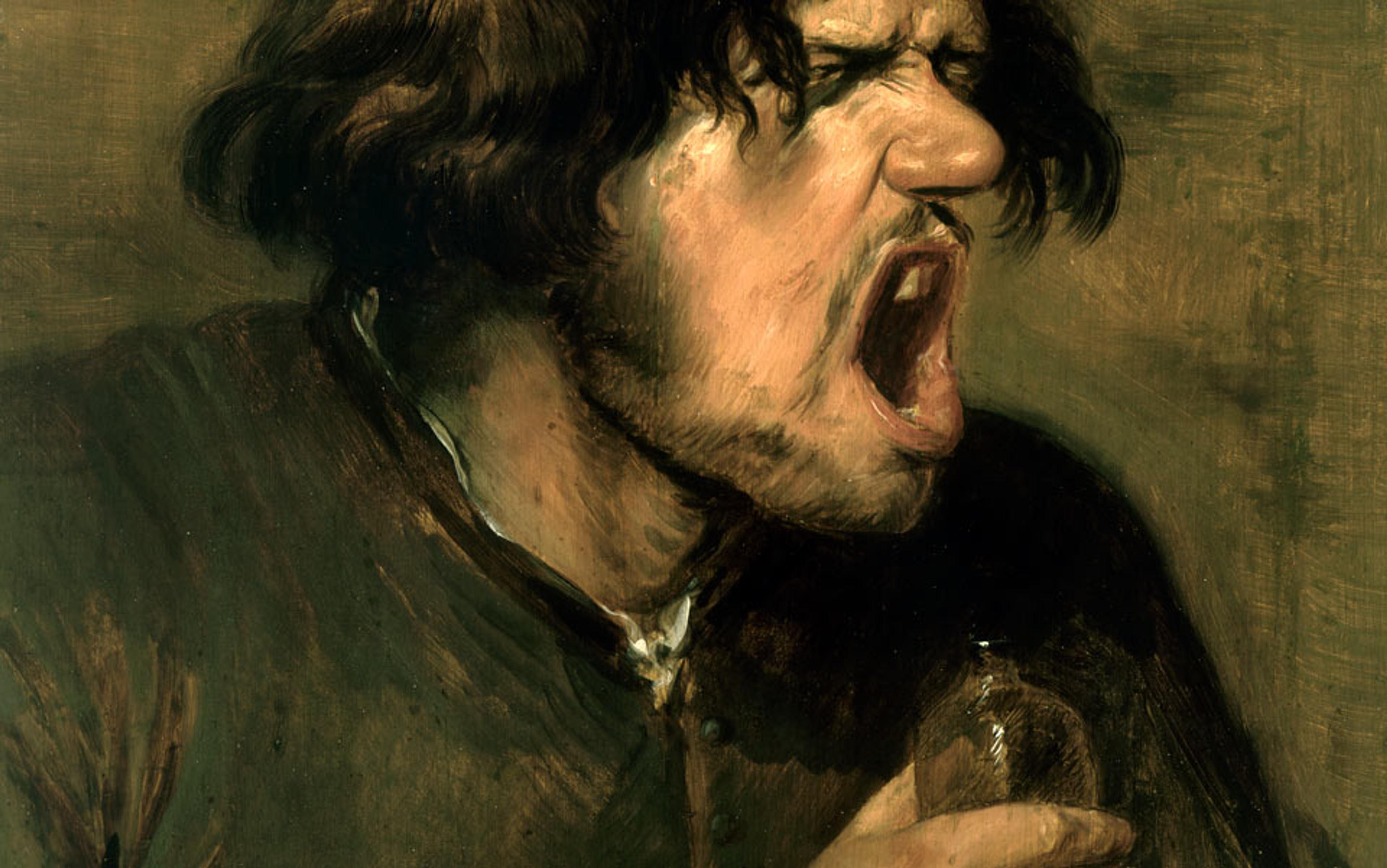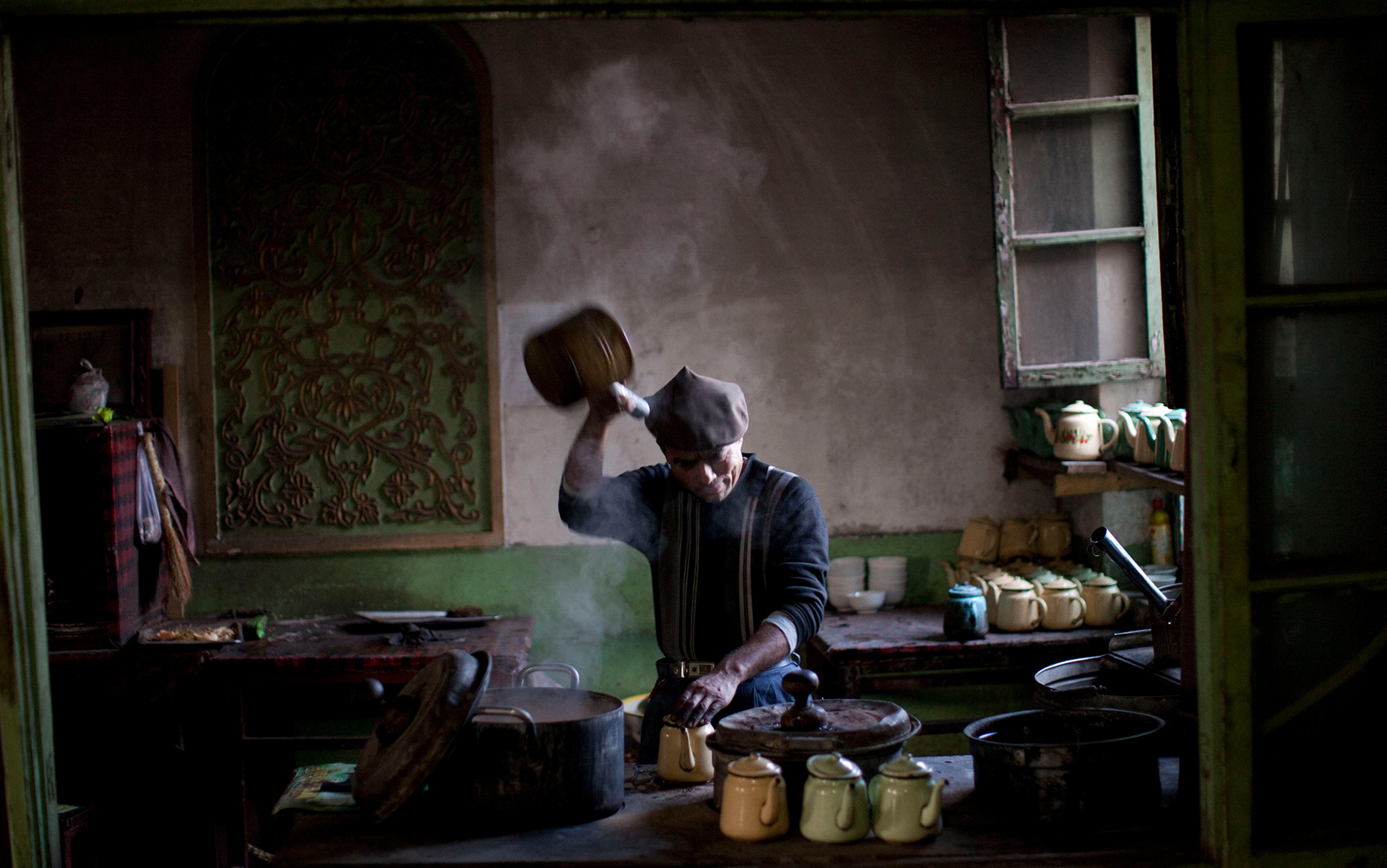The history of the British empire in Asia cannot be told without the Scots. As loan sharks, drug smugglers, diplomats, generals and plant hunters, they played key roles in expanding Britain’s imperial reach. They kept the empire caffeinated via extortionate loans and opium; they smuggled the lucrative and much-coveted Camellia sinensis (tea plant) from China to India; they lent legitimacy to these efforts by planning and leading Britain’s first embassy to China; and, when this failed, they instigated war with China and looted its palaces. In the process, these Scots ensured that increasing numbers of British consumers could enjoy their daily cup of tea with the empire reaping the financial benefits, and increasingly disastrous consequences for China.
Scotland’s long tradition of migration and soldiering, its poverty and uncertain harvests, encouraged many young Scots to set sail for the East Indies. As far back as the Middle Ages, Scots were an unusually outward-looking group, travelling and settling across Europe, from the Netherlands to the Baltic. For centuries, they exported their martial expertise to Irish chiefs, English kings and European monarchs. By the 18th century, civil war and languishing family fortunes, as well as the promise of new ones, added urgency to the exodus of Scots out of north Britain. They left home very young, often as teenagers, to pursue new economic opportunities made possible by the East India Company’s conquests in India and its growing tea trade with China. But many of them, particularly the Highlanders, had few better options available to them in the aftermath of the so-called ’45. Their failed attempt to restore the Scottish Stuart line to the British throne in 1745 resulted in the devastation of local Highland communities by the British army, in addition to a long-term draconian project that restructured and assimilated the Highlands according to English economic, cultural and political norms.
The Scots’ relative poverty when compared with their southern neighbours, the resistance they faced obtaining administrative positions in London, and their experience and willingness to travel beyond the borders of the British Isles meant that Scots in Asia tended to be better educated and often better represented than their English counterparts in a range of professions across the empire, particularly the East India Company’s military. Towards the end of the 18th century, English observers commented, with a parochial dose of hyperbole, that everyone in India was either Scotch or Irish, or that you seldom saw more than five English to 20 Scotch in India; English traders complained about their clannishness, partiality to their own countrymen and national pride.
What these English observers perhaps could not see was that ‘colonisation’ of Britain’s empire by the Scots held the nascent British state together. The fragile and volatile political union of England and Scotland in 1707 was, in fact, reinforced through the efforts of several Scottish patrons in London. With the blessing of Sir Robert Walpole, regarded as Britain’s first prime minister (1721-1742), imperial gate keepers, such as John Drummond of Quarrell, placed their countrymen in various East Indies posts. Because positions in Scotland were insufficient and appointments in London were fiercely guarded by English interests, the East Indies came to serve as an important outlet for patronage and a means of securing Scottish loyalty to the British state. Many Scots got jobs with the British East India Company, as captains and mariners on its vessels, and as civil, military and medical personnel in its settlements. But no matter their particular profession or title, they leveraged these opportunities provided by the imperial machine to dabble in money ventures of their own. By the middle of the 18th century, Scottish interests in Asia had been well-established and their networks deeply entrenched. The most fortunate Scots returned to Britain as wealthy nabobs, infiltrated the directorate of the East India Company, and became some of its principal stockholders. Their successes laid the foundation upon which future generations would build.
During the second half of the 18th century, a numerically small but economically influential group of Scots flocked to China. They set up shop in the port city of Canton, modern-day Guangzhou, where they created an important financial niche for themselves. As Britain’s tea trade with China grew over the course of the 18th century, both the East India Company and the Chinese Hong merchants – tea brokers licensed to trade with foreigners in Canton – found it difficult to finance their respective ends of the tea trade. Their capital supplies (silver coin) could not keep up with the growing demand for tea. Around the same time in India, British conquests in Bengal and Madras brought a great deal of new wealth and opportunity for personal enrichment to the East India Company’s civil and military employees. Robert Clive, who helped to found Britain’s territorial empire in India during the mid-18th century, is perhaps the most infamous nabob, but there were others. With money accumulating in private British hands in India, Scots quickly got to work, tapping into their network of friends, kin and countrymen in India and Southeast Asia to move commodities and capital across the Indian Ocean.
Scottish financiers transmitted the private fortunes of their clients to England via China by depositing their money in the Company’s Canton treasury in exchange for paper bills, which could be cashed in London. The remainder they invested in usurious loans of silver to the Chinese merchants, sometimes above 20 per cent per year. On the one hand, in bringing precious silver to Canton, Scots played a critical role financing commerce between Britain and China. On the other, they created an unstable financial mechanism, which relied upon risky credit relationships. The result, unsurprisingly, was a major financial crisis in the early 1780s. Half of the Hong merchants were ruined; two of them, Yngshaw and Kewshaw, were jailed by the Chinese government and eventually deported to Xinjiang Province. Several of the Scottish brokers also went bankrupt but avoided imprisonment in both China and Britain. In an effort to encourage local authorities to assist them in recovering their money, Scottish brokers and their clients bribed two Royal Navy admirals stationed near Madras to dispatch a warship to Canton in 1779 and 1780. One broker went so far as to confiscate and occupy the warehouses and property of several Chinese merchants with a small private army of Indian soldiers. Six decades before the First Opium War, Scottish brokers and merchants flirted with war in China.
It was not just in the far-flung outposts that these enterprising Scots charted the course of empire. Expatriate Scottish brokers and financiers also communicated frequently with Henry Dundas, an especially important Scot in London. As de facto head of the Board of Control for Indian affairs, Dundas oversaw Britain’s expanding empire in Asia and set in motion the next evolution of the empire’s dealing with China. Under the advice of Scottish brokers, ship captains and his good friend, David Scott – a former private trader who had become a director of the East India Company – Dundas decided to send an embassy to China in 1787, Britain’s first to that empire, to be led by the ambassador Charles Cathcart, another Scot. With the help of Dundas, Scottish traders not only put an embassy to China on Britain’s political agenda but helped to define the embassy’s goals and strategies. Many of their recommendations, most notably for a permanent independent British settlement, a permanent British consul, and a treaty of friendship, found clear expression in the government’s official instructions to the ambassador, sometimes verbatim. Working with Dundas, Scottish traders found a sympathetic and energetic partner whose imperial vision aligned with their quest for private profit, free trade and greater opportunity in Asia.
It opened China’s borders to two foreign ‘opiates of the masses’: opium and Christianity
Britain’s first embassy to China foundered on the two respective government’s conflicting understandings and traditions of diplomatic engagement, as did a second embassy in 1816. Afterwards, the Scots, in particular William Jardine and James Matheson, the doyens of opium smuggling, pushed for war with China. Like their 18th-century predecessors, Jardine and Matheson financed Britain’s lucrative tea trade in Canton by moving their clients’ money from India to China. Instead of transferring these fortunes through a variety of legal Indian and Southeast Asian commodities, namely cotton, pepper, wood, tin and saltpetre, as had been done in the past, the Scottish traders relied increasingly on a contraband product: Indian opium. In defiance of the laws of China they, along with private traders of different nationalities including Americans and Indian Parsis, smuggled tens of thousands of chests of opium into China each year during the first half of the 19th century. In the late 1830s, the Chinese government finally committed itself to enforcing its laws against opium import. They dispatched the former governor of Hunan and Hubei, Lin Zexu, to Canton who confiscated 20,000 chests of opium from private smugglers. Jardine and Matheson responded by using Matheson’s newspaper, the Canton Register, to agitate for war and pressured the foreign secretary Lord Palmerston with letters and petitions. Jardine even returned to London and met with Palmerston to press the case for military intervention in China.
Jardine and Matheson ultimately got their war. But, interestingly, the Treaty of Nanjing that ended the First Anglo-Chinese War (1839-42) – or the First Opium War as it was called by its critics in Britain – never mentioned the substance that had sparked the conflict. The legality of the opium trade remained unaddressed until 1856 when the British government used an obvious pretext – the boarding and arrest by Qing officials of the British-flagged Chinese smuggling ship, the Arrow – to declare war on China and negotiate more favourable commercial terms from the Chinese government. The Second Opium War (1856-60) and the signing of the Treaty of Tianjin opened China’s borders to two foreign ‘opiates of the masses’: opium and Christianity, by forcing the Chinese government to allow Indian opium and Protestant missionaries to enter China legally.
It was a Scottish general, James Bruce, the 8th Earl of Elgin, who was sent to China to fight the Qing government in the Second Opium War. His brother, Frederick Bruce, was appointed in 1858 to be Britain’s first residential minister in Beijing. Their father, Thomas Bruce, the 7th Earl of Elgin, is perhaps best-known for removing half of the Parthenon’s surviving marble sculptures from Ottoman-controlled Greece and then selling them to the British government in the early 19th century. Looting might have run in the family, for in 1860 Lord Elgin, the younger, ordered the sack and plunder of the Chinese emperor’s summer palace (Yuanmingyuan) outside Beijing. The act came in retaliation for the torture and murder of 15 members of Elgin’s negotiating party, including 10 Sikhs and one ‘embedded’ British journalist. Many of the items stolen by British soldiers from the Old Summer Palace, including a British-made stage coach, English howitzer guns and various astronomical instruments, had been given to the Chinese emperor as tokens of peace and friendship during Britain’s first diplomatic mission to China almost 70 years earlier. Some of these and other items may have ended up in the British Museum, along with the Elgin marbles.
Between the two Opium Wars, another Scot, Robert Fortune, was making his own mark on the history of the British empire and China. A botanist turned plant hunter, Fortune was sent to China on a secret mission by the East India Company. The aim was to free Britain from its commercial dependence on China. In 1848 and again in 1849, Fortune travelled in full disguise, including the traditional Qing dynasty hairstyle with a shaved hairline and long braid, deep into the countryside of Zhejiang, Anhui and Fujian provinces. He was searching for the finest tea plants in China. Having acquired thousands of specimens and seeds, he shipped them all, carefully packed in airtight glass cases, from Hong Kong to the East India Company’s Botanical Gardens in Calcutta. From there, they went further, to the Company’s gardens in the Himalayas. Fortune also arranged for Chinese tea growers and artisans to follow these seeds to India and work on the new tea plantations in Assam. In 1865, only 3 per cent of the tea consumed in the United Kingdom came from India; just over 20 years later, it claimed 41 per cent of the market, and Scottish planters cultivated most of it. This was import substitution on a massive scale. The seeds sewn through the botanical espionage of this Scot with a green thumb helped to launch Britain’s tea industry in India and establish commercial independence from China.
By facilitating global capitalism, through fair means and foul, and expanding Britain’s imperial reach, strategically placed Scots left their mark on the histories of Britain and China. Scots played an outsized role in the intertwined trades of tea and opium, giving rise to social, economic and cultural developments that changed the macro relationship between Britain and China as well as everyday cultural practices and patterns of sociability. By the middle of the 18th century, tea drinkers up and down the social ladder and across the British Isles and its American colonies could be found sitting around the table sipping their breakfast and afternoon infusions from Chinese porcelain cups. These remarkable cultural transformations came with profound economic effects. Widespread tea consumption brought vital revenues to the East India Company and the British state, while import substitution in British India stimulated the growth of new British agro-industries in the 19th century. Tea consumption in Britain also had profound implications for its Atlantic empire. When British consumers began sweetening their Chinese tea with Caribbean sugar, these two commodities, one from the East Indies, the other from the West, reinforced one another. The result was new fuel for the industrial revolution. In addition to coal, sugary tea made the revolution possible by helping British workers endure inhumanely long shifts in the textile factories of the industrial North.
Tea consumption in Britain paralleled opium consumption in China. Scots realised that it took one addictive substance to finance another. The historians Frank Dikötter, Lars Laamann and Xun Zhou have recently questioned the addictiveness of opium and its destructiveness to the Chinese state, society and economy. But there is no question that the wars fought over the drug led to hundreds of thousands of deaths in China and have had profound effects on modern Chinese politics. Not because the wars were particularly transformative at the time – only with the Sino-Japanese war of 1894-5 did it become painfully clear to many that the Qing dynasty would not survive – but rather because for almost a century the Communist Party has been using the Opium Wars to justify its power. In the Communist telling, the Opium Wars were a turning-point in Chinese history, when Scottish capitalist imperialists, such as Jardine and Matheson, poisoned China with a noxious drug and the Communists emerged to save China. This narrative of Chinese humiliation at the hands of British opium smugglers is still powerful: in 2010, when the then UK prime minister David Cameron and his delegation to China wore their Remembrance Day poppies (the flower from which opium is made) on their lapels, Chinese officials requested that they remove them. Cameron, who coincidentally is Scottish on his father’s side, refused.
